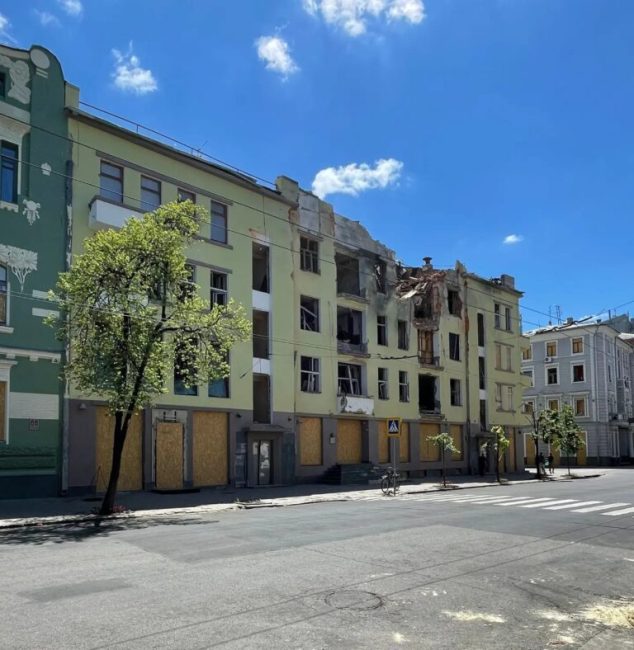2022.
Friday, June 3
We are currently traveling through Hungary towards the border with Ukraine, with our first stop being the city of Uzhgorod. At our border, no one cared why we were going to Ukraine or what we were carrying. The Hungarians were only interested in the price of the goods.
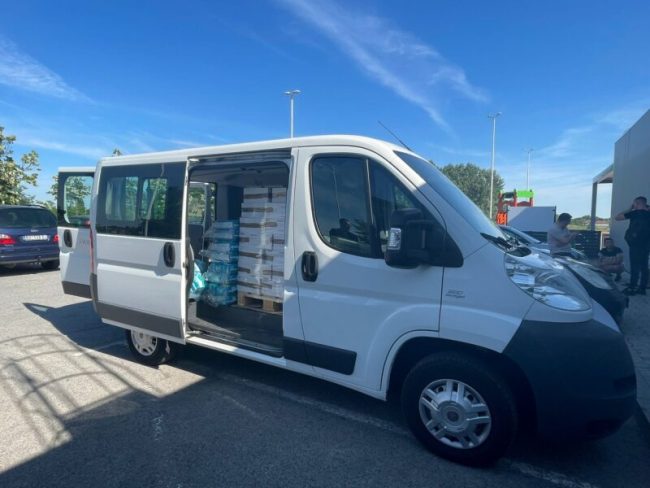
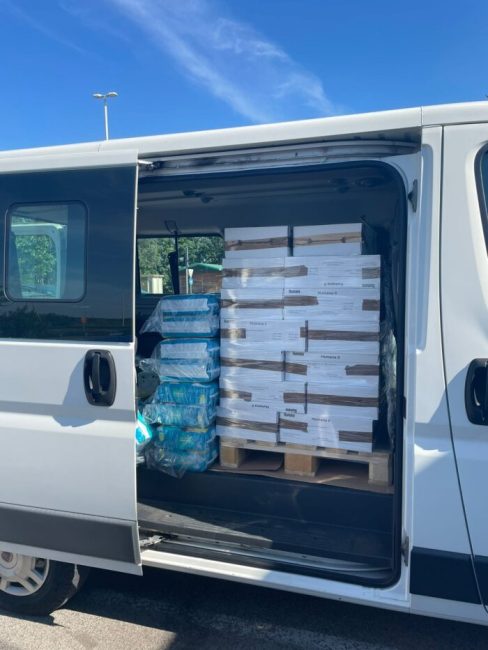
Saturday, June 4
Things did not go smoothly from there. We spent the night at the Ukrainian border. They took our fingerprints, photographed us, and waited for authorization directly from Kyiv before letting us through. They are polite but adhere to a procedure that is particularly stringent for Serbian citizens, as most of our nationals, according to them, come to fight on the side of Russian separatists. Serbia doesn’t have a good reputation here today. Andriy Lyubka, a writer and translator (and above all, our friend), helped us get the permit. We waited until 7 a.m. when we finally managed to cross the border and soon arrived in Uzhgorod, which is 20 km away. Here, we were welcomed with breakfast and coffee at a small NGO. We hope to load the aid into a French humanitarian truck and continue on to Kharkiv, as planned. With Serbian plates, we cannot go any further. Life here seems to function—at least the basics. There is a sense of solidarity and empathy.
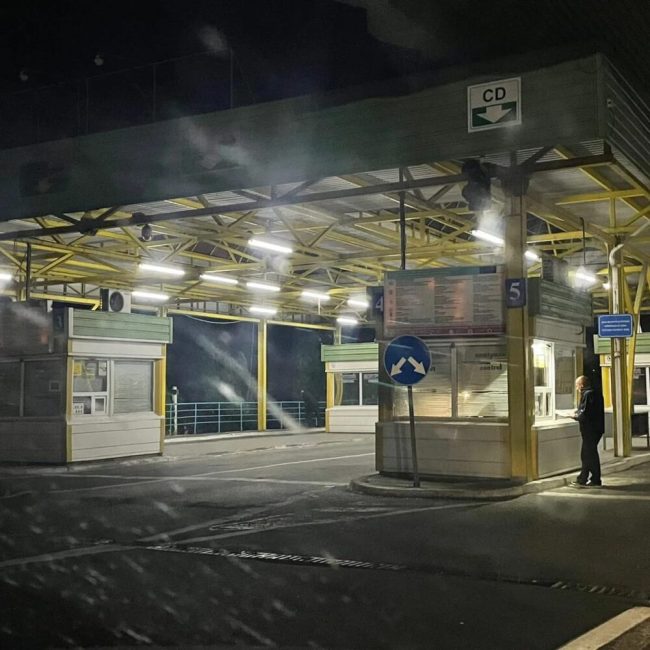
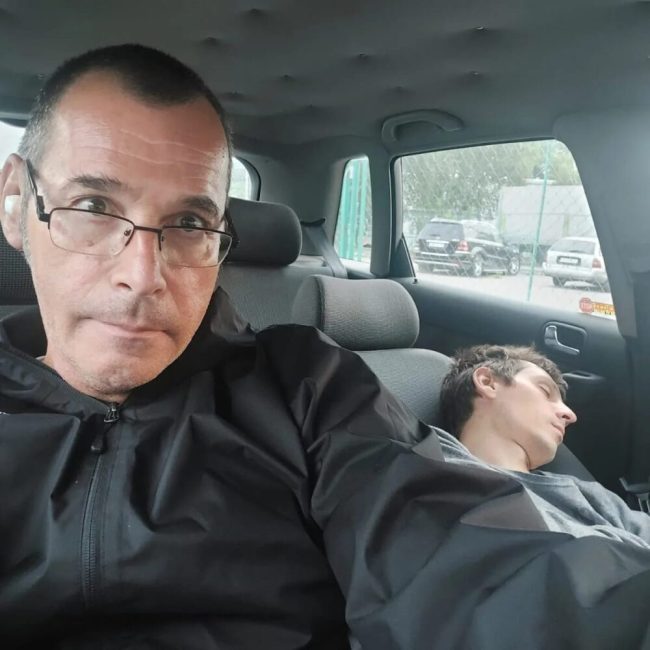
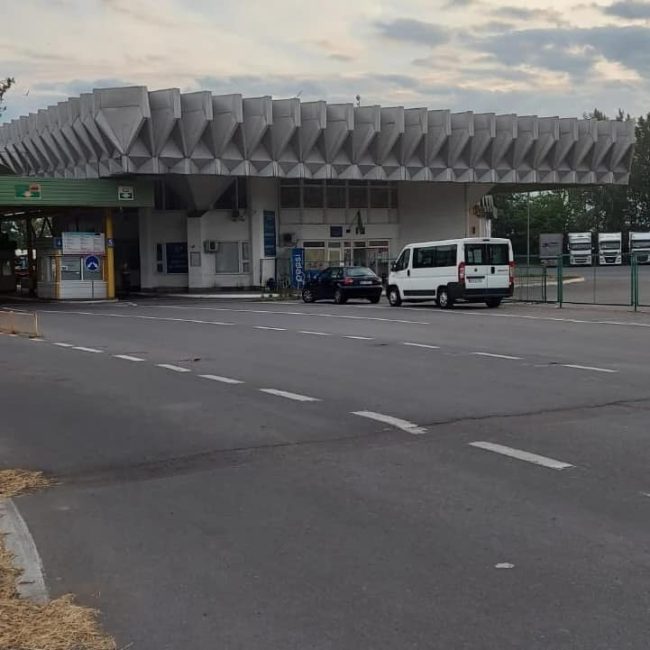
In a true spring downpour, Alexey, Natasha, Andriy, Milan, and Vlada packed the aid we brought from Belgrade (a respirator for babies under one kilogram, food, and diapers) and additional supplies collected by local people in Uzhgorod into two vehicles provided by the Zakarpattya Medical Aid Committee around 10 a.m. this morning. We are currently entering the Galicia region and heading towards Lviv, where we will make a stop before continuing on to Kyiv, where we will spend the night. For now, we are sticking to the plan, although we are exhausted and sleep-deprived. Many thanks to the rest of KROKODIL who are supporting us, managing logistics, and dealing with those who wish us harm, even when the time calls for absolute and unequivocal empathy.
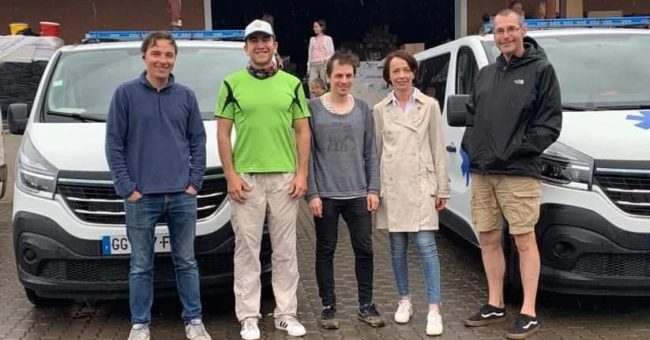

We decided to spend the night in a hotel/motel near Zhytomyr to avoid the curfew before Kyiv. We will wake up at 4 a.m. to continue our journey towards Kyiv and Kharkiv by 5 a.m. We are dazed and extremely exhausted from lack of sleep. The area already feels like a war zone, with military checkpoints becoming more frequent. We haven’t encountered any hostility for being from Serbia. Andriy Lyubka, who is traveling with us, mentions this everywhere we stop, and the reactions have been positive. When talking to Ukrainians, it is clear that the war is ongoing. Although there has been no destruction in the western part of the country, the war is felt through the frequent military checkpoints and fuel shortages at gas stations. Peace seems impossible from here, and there is no end to the war in sight. Good night.
Sunday, June 5
We are currently transferring fuel from canisters because there’s none available at the gas stations. Andriy brought 200 liters to ensure we reach Kharkiv and return to Uzhgorod. This morning, at 5:03 a.m., we were awakened in Zhytomyr by air raid sirens. We continued our journey towards Kharkiv at dawn. As we approached Kyiv, the signs of destruction became increasingly evident. What we found in Borodianka and then in Bucha surpasses the limits of human understanding. Kyiv welcomed us grandly, cosmopolitan, and beautiful, with its wide boulevards and monumental buildings, but unusually empty—more than half of the three-million-strong metropolis has left the city since the start of the war. We crossed the wide Dnieper River and found ourselves in eastern Ukraine. We are still about 500 kilometers from our final destination—Kharkiv.
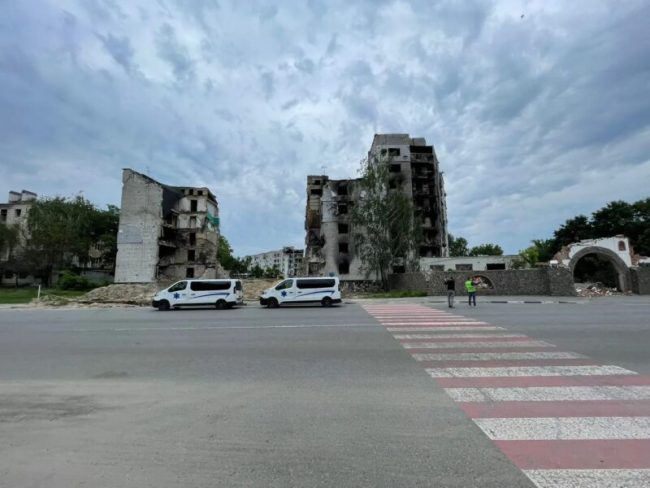

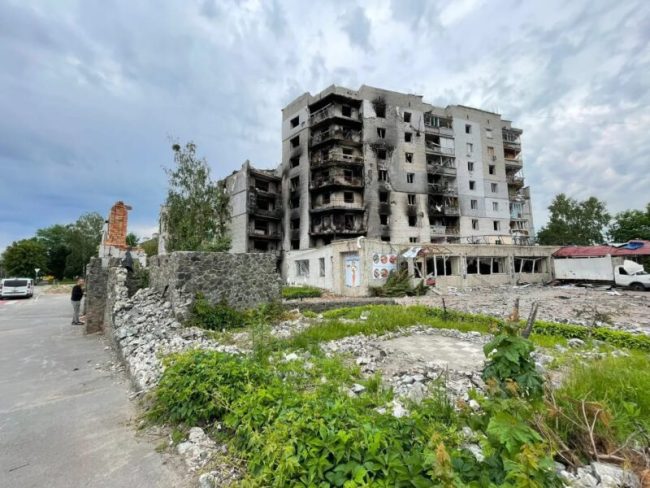
After covering 2,200 kilometers over two days, traveling from Belgrade through Uzhgorod, Zhytomyr, and Kyiv, we finally reached the destination of our journey—the eastern Ukrainian industrial city of Kharkiv, located right by the border with Russia. In the city center, at the unusual and very colorful Puppet Theater where the staff and children have been staying since the occupation, we met the renowned Ukrainian poet Serhiy Zhadan. He, accompanied by soldiers from the Hartiya Battalion (which means “agreement” in Ukrainian, not “paper” as in Serbian), helped us in the final stage of our journey. Together, we first delivered a respirator, diapers, and formula for premature babies to the Kharkiv Perinatal Center. We then handed over one of the two medical vehicles to the staff of the city’s Emergency Center, while the other vehicle was driven directly to the medical unit on the frontline, which is now right by the border with Russia. An ironic detail is that the first city on the Russian side of the border is called Belgorod. This marked the end of our primary mission for which we undertook such a long journey. We are pleased that we succeeded in our effort to help people here, and the fact that our day continued with a meeting with members of the Ukrainian PEN Center and discussions about organizing a residency program for Ukrainian writers and cultural workers at KROKODIL’s writers’ residency shows that our collaboration is far from over—in fact, it is just beginning. But more on that and other topics in a future post. For now, we are at the hotel and, after two practically sleepless nights, we can finally get some decent rest, although we can hear and see the distant shelling of the city. And speaking of which, the air raid siren that woke us up this morning in Zhytomyr was for two guided missiles fired at Kyiv.
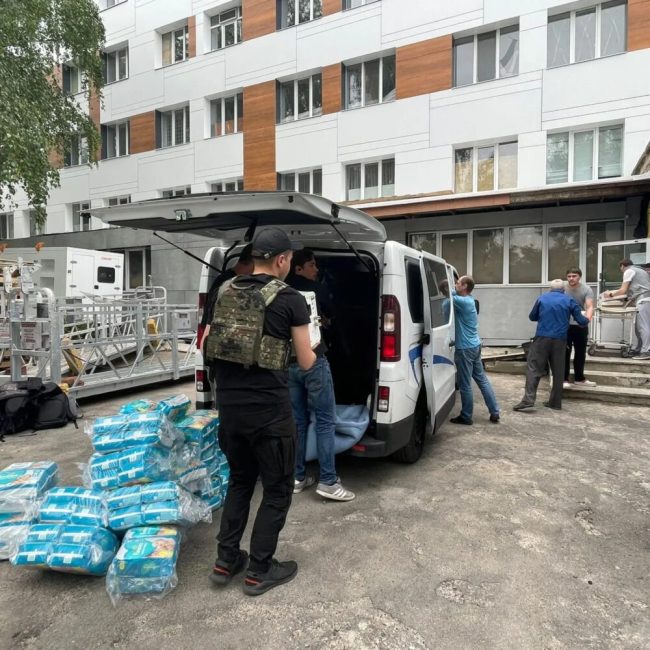
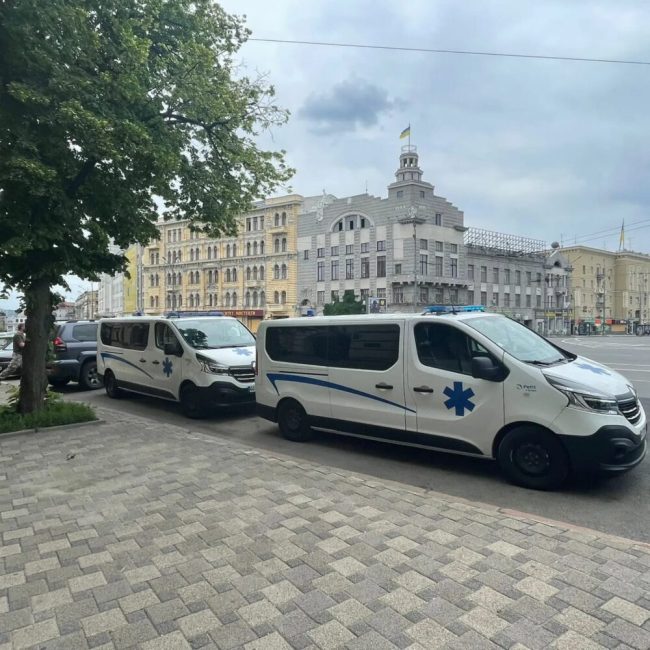
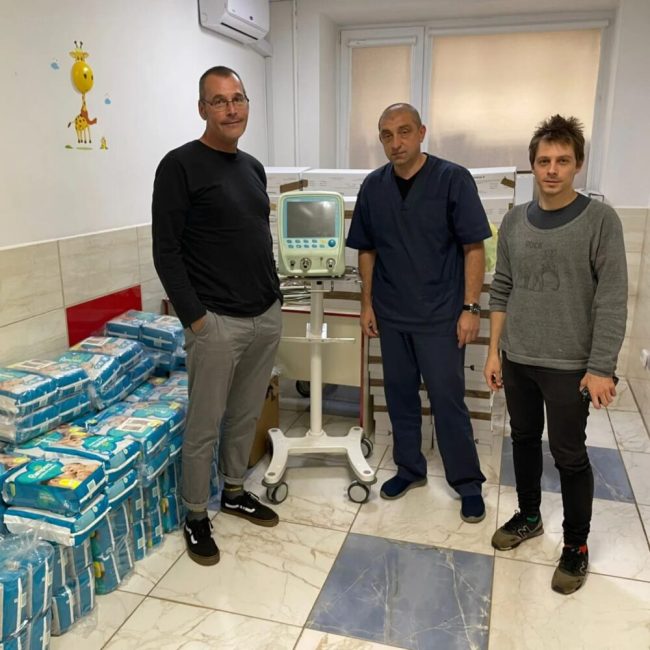
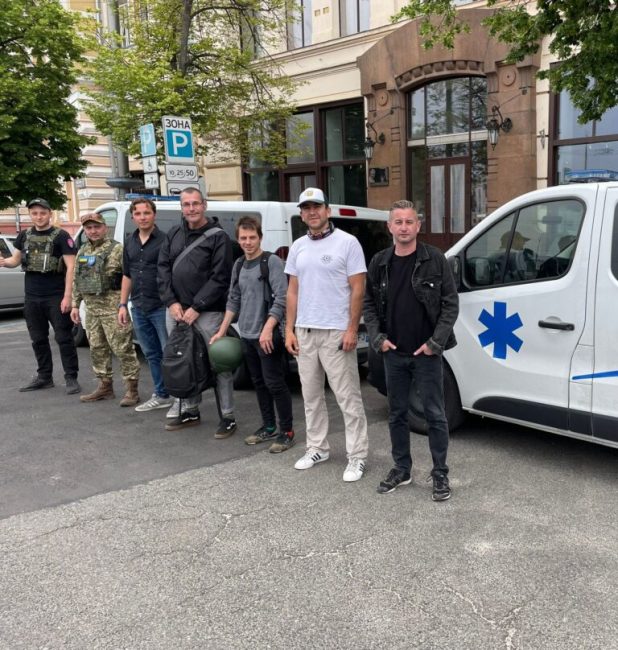
Monday, June 6
The systematic destruction of Kharkiv is a horrifying reality of Russia’s aggression against Ukraine. Last night, after delivering humanitarian aid to the City Perinatal Center and the Emergency Center, and finally arriving at the hotel, we heard sirens and several powerful explosions, followed by a brief power outage and thick black smoke billowing from the northern edge of the city. This morning, we were awakened by the distant rumble of shelling and sirens again. During our walk through this beautiful and vibrant city, which was a center of Soviet artistic avant-garde in the 1920s, we observed several examples of the destruction of the old city center. This devastation serves no military or strategic purpose other than spreading terror, fear, and despair among the civilian population. It speaks volumes about the nature of the Russian occupation, which no amount of relativization can justify. We are writing this from the monumental hall of Kharkiv’s railway station, where we will soon board a train back to Uzhgorod, a journey that will take exactly 24 hours and 15 minutes. After that, we only have the final leg of this long journey remaining—the return to Belgrade.


